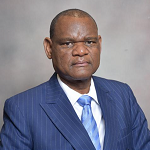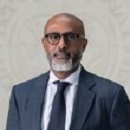|
Location: AB02 Irhoud
REPORT
Blurb:
How has Botswana managed to tame inflation while overcoming the tension between monetary and fiscal policy, including in the context of a crawling peg? What should be the role of the central bank in tackling structural challenges and supporting long-term development goals?
Key Points:
Safeguarding price stability. Monetary policy tightening has come to a pause following the steady decline in inflation and inflation expectations. The focus on maintaining effective policy coordination – based on transparent, predictable, and consistent policy making – has been key in overcoming the tension between monetary and fiscal policy and bringing inflation under control. Going forward, vigilance toward food price dynamics will be particularly important for Botswana, given challenges posed by climate-related events and global developments.
Quotes:
“Some of the tools that you require, for example to solve unemployment, growth and inequality and so forth, do not fall within the mandate of a central bank, but that does not mean we are helpless; macroeconomic stability is the oxygen that you need in the economy…central banks do contribute by ensuring that inflation continues to be predictable and clearly contained.” Moses Pelaelo
“Credibility is everything in fighting inflation. Credibility is very important in terms of financial intermediation for example and growing the financial sector.” Moses Pelaelo
Contributor: Fares Rawah
PANELISTS
 |
||
| Moses Dinekere Pelaelo Governor of the Bank of Botswana |
||
Mr. Moses Dinekere Pelaelo was appointed Governor of the Bank of Botswana effective October 21, 2016, by His Excellency the President, Lieutenant General Dr Seretse Khama Ian Khama.
Governor Pelaelo joined the Bank of Botswana in 1990 as Senior Bank Examiner in the Banking Supervision Department following a six-year lectureship in accounting and management studies at the Botswana Institute of Administration and Commerce and University of Botswana. He rose to various senior positions in the Bank and, in 1996, was appointed Head of Administrative Services Department and shortly, thereafter transferred to be Director of Banking Supervision Department. In the Banking Supervision Department he was instrumental in establishing the institutional framework for banking supervision post the abolition of exchange controls in Botswana. He formulated a number of prudential regulations and policies, including a paper on banking soundness and macroeconomic stability, capital adequacy framework for Botswana and introduction of the public Annual Banking Supervision report.
In 2003, Mr. Pelaelo took a three-year sabbatical leave and joined the Financial Stability Institute at the Bank for International Settlements (BIS) in Basel (Switzerland), where he continued to expand and deepen his knowledge of banking regulation, supervision and financial stability. As part of his work at the BIS, he coordinated a number of international conferences and presented on a wide range of topics for banking supervisors across the world, including in Africa, Middle East, South East Asia, South and Central America, the Caribbean Islands, Eastern Europe, Transcaucasia and Central Asia. Mr. Pelaelo also hosted a number of banking supervision seminars for the global group of banking supervisors at the BIS, Switzerland.
Mr. Pelaelo was appointed Deputy Governor in 2006 and had overarching responsibility for banking regulation and supervision, payment infrastructure and oversight, banking & currency, accounting, security and other support services. In addition to being a member of the Executive Committee, he chaired and provided leadership for a number of Committees in the Bank including the High-Level Inter-Agency Committee for the Financial Sector Development Strategy 2012 - 2016, Currency Design Committee, the National Payments Task Force, Regulatory Policy Committee and Tender Committee. As Deputy Governor, Mr. Pelaelo is also a member of the Monetary Policy Committee and Investment Committee of the Bank. Mr. Pelaelo also formed part of the IMF and World Bank missions on Financial
Sector Assessment Programmes for some African countries, focusing, mainly, on the evaluation of their implementation and compliance with the Core Principles for Effective Banking Supervision.
Governor Pelaelo graduated from the University of Swaziland with a Bachelor of Commerce degree in 1983 and obtained a Master’s Degree in Business Administration from the University of Miami, Florida (USA) in 1987.
As Governor, Mr. Pelaelo will maintain the primary focus of the Bank on preservation of monetary stability, as manifested by price and financial stability and a sound and properly functioning banking and payments systems. In addition, the Bank continues to uphold its role as advisor to Government, including in the formulation and implementation of the exchange rate policy and the management of foreign exchange reserves. Success in this regard, requires maintenance and adaptation with respect to credible institutional and policy framework, coordination with other regulators and policymakers, as well as effective communication and outreach strategies.
 |
||
| Abebe Aemro Selassie Director of the African Department |
||
Abebe Aemro Selassie is the Director of the African Department, where he oversees the IMF’s operations and engagement with 45 countries across sub-Saharan Africa.
Under his leadership the IMF has disbursed some $51 billion to support the post pandemic recovery and foster greener more inclusive growth. Working tirelessly alongside the region’s leaders Mr. Selassie strives to strengthen the region’s financial architecture and support Africa reaching its true potential.
Before taking up his current position in 2016, Mr. Selassie gained extensive experience in a wide-ranging career at the IMF. He held various senior positions, including Deputy Director in the African Department, Mission Chief for Portugal during the Euro Area Crisis and South Africa. He has served as the IMF’s Senior Resident Representative in Uganda and earlier in his career, he worked on the Fund’s lending programs with Turkey, Thailand, Romania and Estonia. While in the Strategy, Policy and Review Department he was deeply involved in low-income country and emerging-market programs and policy design issues.
Before joining the IMF in 1994, he worked for the Government of Ethiopia as Principal Economist in the Office of the President and at the Economist Intelligence Unit in London
PHOTOS